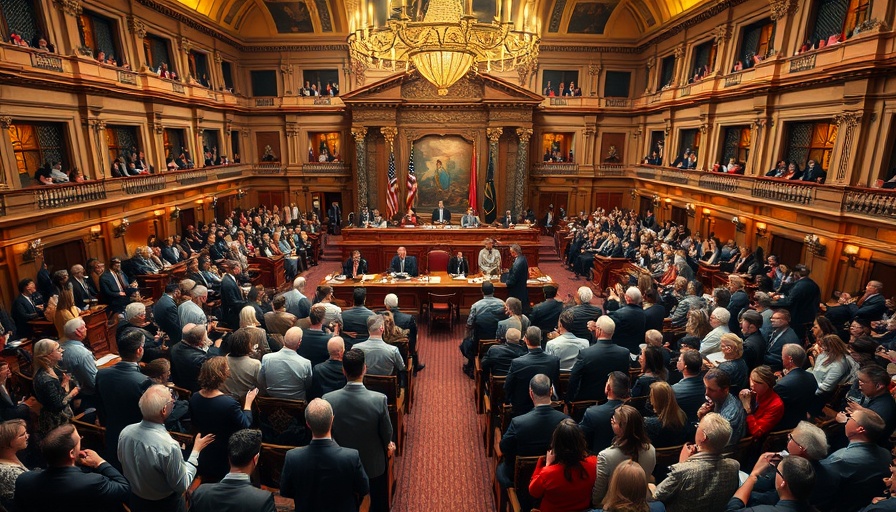
The Collision of Big AI and Biotech: What It Means for States' Rights
In an unprecedented move, the U.S. House has passed the One Big Beautiful Bill Act, which effectively sidelines state authority by prohibiting individual states from regulating artificial intelligence (AI) for the next decade. The legislation aligns itself with FDA regulations, permitting the collection and use of biometric data without individual consent, raising significant privacy concerns.
State Sovereignty Under Threat
As the federal government takes control of AI regulation, states lose their capacity to safeguard their residents against potential harms associated with AI in areas such as healthcare, employment, and personal privacy. States have historically played a pivotal role in responding to emerging technologies, and this law represents a striking compromise of state sovereignty.
The Privacy Implications
One of the most alarming aspects of the bill is its allowance for biometric data to be collected and utilized without consent. This move is seen as a significant invasion of privacy, as citizens may unknowingly have their biometric information harvested and used for purposes they did not authorize.
Resistance and Backlash
The legislation has sparked widespread criticism and concern among civil rights advocates, privacy proponents, and even some lawmakers, who argue that it represents a federal overreach that disrupts the balance of power between state and federal governance. Such pushback highlights the importance of maintaining local governance structures to protect citizens from potentially harmful practices stemming from advanced technologies.
Looking Ahead: Where Do We Go From Here?
The implications of these developments are far-reaching, suggesting a need for vigilant advocacy at both state and federal levels. Those committed to upholding privacy rights and state sovereignty must both educate themselves and engage actively in political discourse to counteract these sweeping regulatory changes.
 Add Row
Add Row  Add
Add 




 Add Row
Add Row  Add
Add 



Write A Comment